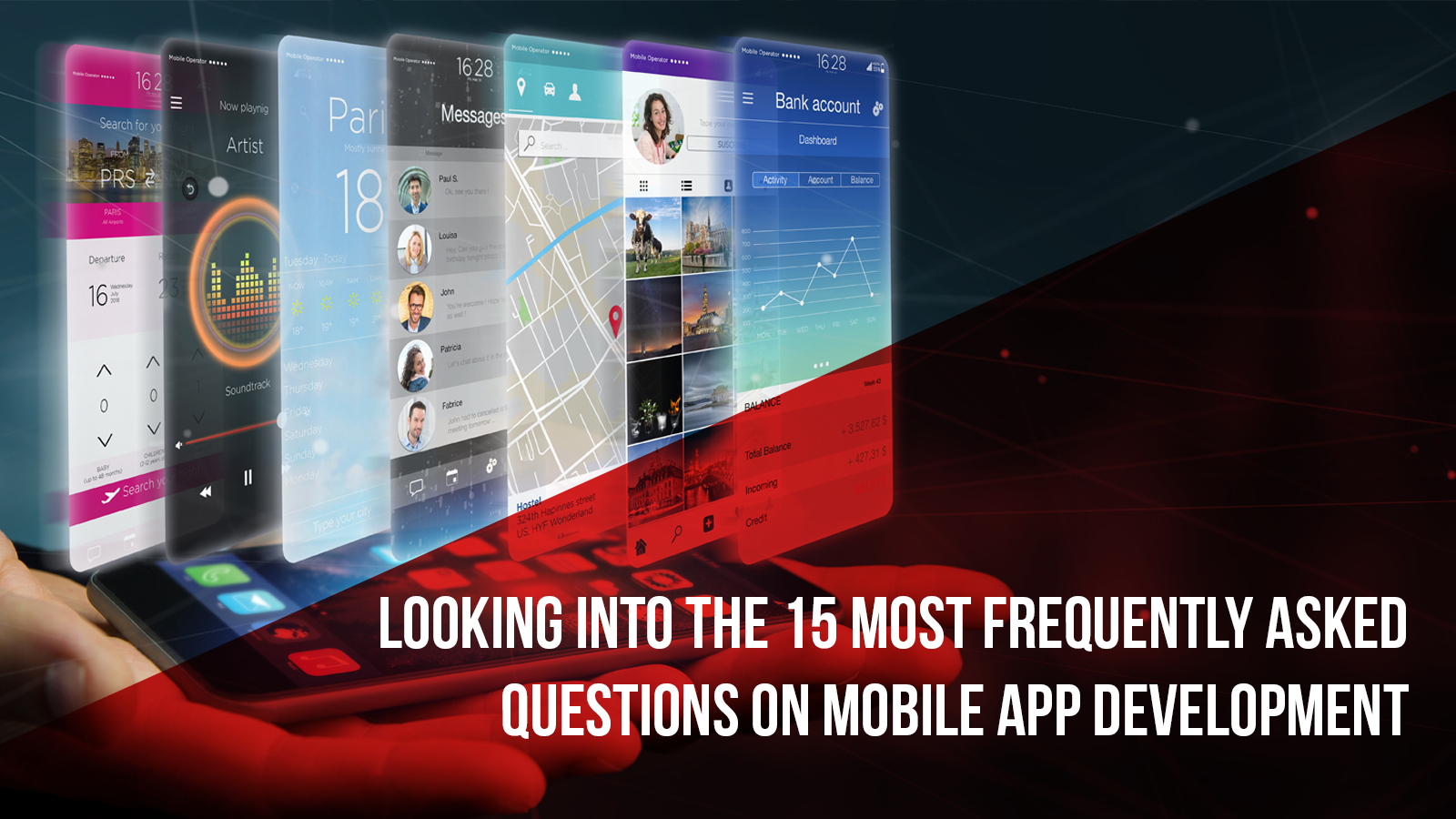15 Most Frequently Asked Questions on Mobile App Development
In the digital world, mobile apps have proven themselves to be indispensable. From education to entertainment, we can find apps for every need and occasion. With the demand for innovative and user-friendly apps rising, it is natural for different questions to arise in the minds of those venturing into the realm of mobile app development.
In this blog post, we will look at the 15 most frequently asked questions on mobile app development.
1. What is Mobile App Development?
Mobile app development is the process of creating software applications specifically designed to run on mobile devices, such as smartphones and tablets. This includes conceptualization, layout, coding, verification, and implementation stages.
2. Why is Mobile App Development Important?
In the digital age, mobile apps serve as powerful tools for businesses to engage with their audience, streamline processes, and offer seamless user experiences. With over 3.6 million apps available on Google Play and Apple’s App Store combined, the significance of mobile app development in reaching and serving a global audience cannot be overstated.
3. What are the Key Stages in Mobile App Development?
Mobile app development consists of several key stages: ideation and planning, UI/UX design, app development, testing, deployment, and ongoing maintenance. Each stage is crucial for ensuring a successful and well-functioning mobile application.
4. Which Programming Languages are Used in Mobile App Development?
The choice of programming language depends on the platform. For iOS app development, Swift and Objective-C are commonly used, while Java and Kotlin are popular for Android. Cross-platform development can be achieved using languages like JavaScript (React Native), Dart (Flutter), or C# (Xamarin).
5. What is the Difference Between Native and Cross-Platform Development?
Native development involves creating separate apps for each platform (iOS and Android) and optimizing performance for each. Cross-platform development utilizes a single codebase to deploy apps on multiple platforms, streamlining development but potentially sacrificing some performance optimization.
6. How Long Does it Take to Develop a Mobile App?
The development period depends on the complexity of an app, its functionality, and the approach applied. Some simple applications could need around three months while bigger ones will require one or two years. Development frameworks such as Flutter and React Native can speed up the process.
7. What is the Cost of Developing a Mobile App?
The cost of mobile app development is influenced by factors such as complexity, features, and geographical location of the development team.
The cost of developing an app in Malaysia can range from RM50 per hour for freelancers to RM300 or more per hour for agencies. For a simple app, costs can range from RM15,000 to RM50,000, while more complex apps may cost RM50,000 to RM200,000 or higher.
8. How Can I Monetize My Mobile App?
There are various monetization strategies, including in-app purchases, subscription models, advertisements, and freemium models. The choice depends on the nature of your app and your target audience.
9. What is the Importance of UI/UX Design in Mobile App Development?
UI/UX design is critical for ensuring a positive user experience. A well-designed interface enhances usability, engages users, and contributes to the overall success of the app. According to studies, 94% of users cite design as a reason they mistrust or reject a website or app.
10. How Can I Ensure the Security of My Mobile App?
Ensuring the security of your mobile app is paramount. Implement secure coding practices, use encryption for data transmission, regularly update software, and conduct thorough security testing to identify and address vulnerabilities.
11. What is the Role of Testing in Mobile App Development?
Testing is a crucial phase in mobile app development to identify and fix bugs, ensure functionality across different devices, and enhance the overall user experience. The absence of robust testing can lead to negative reviews and decreased user satisfaction.
12. How Do I Market My Mobile App Successfully?
Effective marketing is essential for the success of your mobile app. Utilize social media, app store optimization (ASO), influencer marketing, and other digital marketing strategies to increase visibility and attract users.
13. What are Progressive Web Apps (PWAs)?
Progressive Web Apps are web applications that offer a native app-like experience on the web. They combine the best of both web and mobile app experiences, providing fast loading times, offline functionality, and push notifications.
14. How Can I Optimize My Mobile App for Better Performance?
Optimizing performance is crucial for retaining users. Techniques include optimizing images and multimedia, minimizing HTTP requests, utilizing content delivery networks (CDNs), and implementing efficient coding practices.
15. What Trends are Shaping the Future of Mobile App Development?
Mobile app development is an ever-evolving field. Emerging trends include the rise of 5G technology, augmented reality (AR) and virtual reality (VR) integration, artificial intelligence (AI), and the increasing focus on user privacy and data security.
Conclusion
While it is not always easy navigating through different aspects of mobile app development, armed with the answers to these frequently asked questions, you are better equipped to embark on your journey. Stay up-to-date on the latest trends, continuously refine your skills, and leverage the power of mobile apps to make a lasting impact in the digital world.
Have any other questions we haven’t answered? Contact Estrrado for a free consultation on any queries you have on mobile app development.








